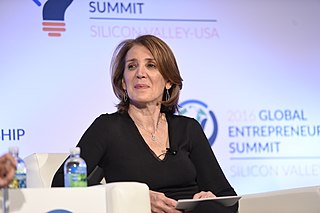A Quote by Michael Dell
I think it is going to be very difficult to be a company in silos. I think the game has changed. We won't define our success by looking at the competitors but at how satisfied are our customers, how engaged are our internal stakeholders, and how good is our product pipeline.
Related Quotes
Many companies operate from more of a command-and-control environment - they decide what's going to happen at headquarters and have the organization execute. That doesn't work here because it's the community of users who really have control.
So we enable, not direct. We think of our customers as people, not wallets. And that has implications for how we run the company. We partner with our customers and let them take the company where they think it's best utilized.
Our business is not based on having information about you. You’re not our product. Our product are these, and this watch, and Macs and so forth. And so we run a very different company. I think everyone has to ask, how do companies make their money? Follow the money. And if they’re making money mainly by collecting gobs of personal data, I think you have a right to be worried.
I don't want our success to be measured only by financial yardsticks, or by our distribution or number of shops. What I want to be celebrated for - and it's going to be tough in a business environment - is how good we are to our employees and how we benefit our community. It's a different bottom line.
Customers don't know what they want. There's plenty of good psychology research that shows that people are not able to accurately predict how they would behave in the future. So asking them, 'Would you buy my product if it had these three features?' or 'How would you react if we changed our product this way?' is a waste of time. They don't know.
Most people would say they live with an internal angst that they can't always put their finger on. This is because the Internet has changed our very way of being in this world, compelling us to be perpetually "on" - from our cars to our computers, our tablets to our smartphones, our desks to our living rooms or dining tables, our churches to our libraries to our schools.
How do we define, how do we describe, how do we explain and/or understand ourselves? What sort of creatures do we take ourselves to be? What are we? Who are we? Why are we? How do we come to be what or who we are or take ourselves to be? How do we give an account of ourselves? How do we account for ourselves, our actions, interactions, transactions (praxis), our biologic processes? Our specific human existence?
I put a lot of emphasis on how to treat people. The reason for this is simple. The real success of our personal lives and careers can best be measured by the relationships we have with the people most dear to us - our family, friends, and coworkers. If we fail in this aspect of our lives, no matter how vast our worldly possessions or how high on the corporate ladder we climb, we will have achieved very little.
Many concerns now make part or the whole of their dividends from by-products that formerly went to waste. How do we, as individuals, utilize our principal by-product? Our principal by-product is, of course, our leisure time. Many years of observation forces the conclusion that a man's success or failure in life is determined as much by how he acts during his leisure as by how he acts during his work hours. Tell me how a young man spends his evenings and I will tell you how he is likely to spend the latter part of his life.



































